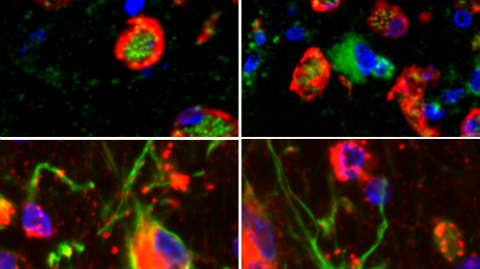Is TSPO a good target for neuroprotection?

- Lead researcher:
- Professor Sandra Amor
- Based at:
- Queen Mary, University of London
- MS Society funding:
- £161,374
- Status:
- Complete
About the project
In MS, the immune system damages the myelin coating around nerves, leaving them exposed. This makes nerve cells vulnerable to damage, which is the main cause of disability in MS.
Research has shown that a type of immune cell found in the brain, called microglia, can help to prevent nerve cell damage and promote myelin repair. In progressive MS however, these cells not only fail to protect nerves from damage, but can also start to damage nerve cells themselves.
Our researchers will test if a protein produced by microglia, called TSPO, can protect nerves from damage. A drug that activates TSPO has already been identified, but we need to show that TSPO is neuroprotective in an animal model before we can test the benefits for people with MS.
How will it help people with MS?
If targeting TSPO is found to reduce nerve cell damage, then we can develop clinical trials for a new treatment based on this mechanism. This has the potential to slow or stop the worsening of disability for people with all types of MS.
The difference you can make
The race is on to find therapies that will slow progression. You can help speed up the process by helping to fund projects like this.




